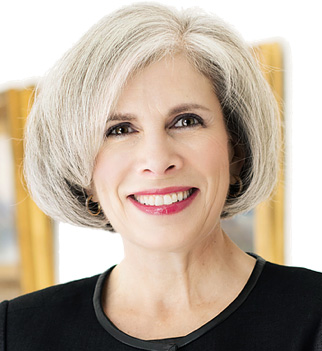Working with Millennials: Easier Said Than Done

December 18, 2017 – Employers have learned a lot about Millennials in the workplace in a very short period of time. And the best companies are making adjustments for them. “Employers need to lean in a bit closer to this generation,” said Smooch R. Reynolds, a global investor relations and communications executive search expert who has focused on ‘working Millennials’ for more than a decade.
“Whether that means providing them inspiration through flexibility or the fueling of their intellectual curiosity,” she said, “management teams simply need to be open-minded to the different directions that Millennials’ thinking takes us.” With three Millennials to advise – and to listen to – Ms. Reynolds knows first-hand a thing or two about this generation and its habits and proclivities.
As is commonly known, this is a generation that seeks more than a paycheck for its efforts in the workplace. To Millennials, personal satisfaction emanating from their work is of prime importance. They desire to make a contribution to the world. And many want to be part of a collaborative effort in making that contribution.
For better or worse, Millennials prefer continuous feedback on their progress at work. For them, any silent time spent between traditional annual reviews is deafening. It’s all part of the burden that’s been laid at the feet of the Baby Boomer generation in charge of training and directing them.
Millennials are helping to write a new definition of what makes a good employee. Millennials care less about the hours they put in and more about the specific contributions they make. To their thinking, how much work they get done is less important than the kind of work they do, how they go about doing it, and the new and innovative ideas they offer. For companies that are open to reimagining what a workplace should be, the contributions of Millennials can be enormous.
 Carrington & Carrington has come to Ezayo exclusively to tap into our HR community to find this leader. They now have been entrusted by one of their top clients to recruit a Vice President of Human Resources to provide strategic HR leadership and functional guidance and to execute talent strategies.Their client is a national leader in the healthcare and life sciences space. Apply Now!
Carrington & Carrington has come to Ezayo exclusively to tap into our HR community to find this leader. They now have been entrusted by one of their top clients to recruit a Vice President of Human Resources to provide strategic HR leadership and functional guidance and to execute talent strategies.Their client is a national leader in the healthcare and life sciences space. Apply Now!
The Future of the Global Workforce
 In this final episode of our 10-part podcast series, ‘Working with Millennials,’ we feature another highly informative Q&A with Smooch R. Reynolds, a global investor relations and communications executive search expert. According to Ms. Reynolds, Millennials “will define and forge a more gratifying type of work experience for the future.” But will they be happy? Listen Now
In this final episode of our 10-part podcast series, ‘Working with Millennials,’ we feature another highly informative Q&A with Smooch R. Reynolds, a global investor relations and communications executive search expert. According to Ms. Reynolds, Millennials “will define and forge a more gratifying type of work experience for the future.” But will they be happy? Listen Now
But there’s been a cost. And with Generation Z now looming, Millennials are being seen in an entirely new light. Many Millennials, it seems, are having difficulty not only settling on career paths, but keeping their jobs. They are more likely to feel unfulfilled in their work. And they tend to quit jobs rather than tough them out.
Managers have also said that Millennials simply expect too much of their workplaces and of their superiors, oftentimes judging their work environment too harshly. Millennials also admit to embracing social media perhaps a bit too tightly, with many saying that it can be one of their biggest distractions on the job. Millennials, more often than not, are seen as self-absorbed, entitled and in perpetual need of that ‘gold star for performance’ – whether deserved or not. Its leaving the value proposition of Millennials in the workplace up in the air, the consequences of which are just now reverberating.
“Millennials need to be open-minded to what their older generation partners in management are attempting to teach them, because it will add to their broad knowledge about how to navigate business better,” said Ms. Reynolds. “As a result, their freshness in thinking and intellectual creativity will thrive.” And so, too, will their professional lives.
Why Millennials Are In the Driver’s Seat
As employers strive to reach, engage and hire Millennial talent, said Ms. Reynolds, Millennials are “in the driver’s seat” when it comes to the future of business. “The way they interact digitally and revolve their lives around technology is completely reshaping how business is done,” she said. “As a result, companies are scrambling to keep up and establish best practices to thrive in a world that’s gone digital.”
 Here Are Five Types of Millennials You Need to Know
Here Are Five Types of Millennials You Need to Know
Millennials have surpassed baby boomers in the United States as the largest living generation, according to population estimates released by the U.S. Census Bureau. Defined as those born roughly between 1983 and 2000, they are a generation worldwide that is changing everything.
Though some companies find it difficult to employ Millennials, Ms. Reynolds explained the importance of making the effort to hire and retain them. “Companies must step up now to discover how to attract, recruit and retain this important human capital asset,” said Ms. Reynolds. “They represent the future.”
Listen to our first episode: ‘Why Millennials Are In the Driver’s Seat’
Why the Millennial Vote Matters
Just days before the historic 2016 Presidential election, Ms. Reynolds discussed the impact that Millennials could have on the future of American government. The key concern, she said, is whether they will make their influence felt by showing up at the polls.
 Millennials & Politics: Why the Youth Vote Matters
Millennials & Politics: Why the Youth Vote Matters
Millennials and politics. What a hot topic! This demographic group is now as large a potential political force as Baby Boomers, poised to make up 25 percent of the vote, according to an analysis of U.S. census data from the Pew Research Center.
“This generation is informed predominately through the social media lens, good or bad,” she said. “This generation has had little opportunity to set a foundation to develop critical and key criteria that feel right in order to contribute to being a productive part of this election.”
How Millennials will ultimately affect the political landscape is yet to be seen, but Ms. Reynolds said the potential is there. “My guess is they will try to align themselves with whichever party seems to present concrete, effective answers to societal challenges.” Regardless, they will always focus on the ethics of the candidate pool. “This is even more of a reason for Millennials to get out the vote,” she said.
Listen to our second episode: ‘Why the Millennial Vote Matters’
What Makes Millennials Tick
When it comes to changing society, Millennials will have some of their most significant impact in shaping both the political discourse and the workplace. “Millennials are highly intellectually curious and interested in making a difference in the world,” said Ms. Reynolds. “As this generation becomes more educated about political topics in the future I believe we will see a rise in their political engagement.”
 How Millennials Will Shape Politics & the Workplace
How Millennials Will Shape Politics & the Workplace
Hunt Scanlon’s analysis of the 2016 Millennial electorate suggests that the youth turnout remained about the same as in 2012. Nothing, it seems, in the recent election cycle excited this important demographic group to get out their vote.
This is a generation that has great societal curiosity and is willing to pursue its passions. “They tend to gravitate towards roles in companies that are aligned with their own passion and interest, and as a result I think their engagement levels at work will substantially increase over time,” said Ms. Reynolds.
Millennials’ tendency is to pursue employment that supports their passion and that allows them to be fully engaged, productive and innovative in their efforts, Ms. Reynolds explained. “If there ever was a generation of potential influencers across business this is the generation that is going to start to turn the workplace in terms of its configuration, how people collaborate together and how individuals approach problem solving,” she said.
Listen to our third episode: ‘What Makes Millennials Tick’
Continuous Learning Path
The slogan for Millennials in the workplace might well be, “This is not your father’s career path.” Instead of climbing corporate ladders, Ms. Reynolds said, Millennials are focused on learning technical and personal skills to ensure long-term career security as they seek to build a “career for me.”
 Millennials Choose Career Over ‘Being Boss’
Millennials Choose Career Over ‘Being Boss’
The vast majority of Millennials see ongoing skills development as an important part of their future careers. They would pay for it personally and give up their own time to do it. But there are varying degrees of desire, capability and commitment to learning.
“Millennials learn quickly and seek out intellectual stimulation,” she said. “As a result, they view roles as a steppingstone because they want to be on a continuous learning path. Millennials have unknowingly adopted the buzz that’s becoming what I describe as a ‘corporate athlete’ at a much younger stage in their careers than most, which is actually to the advantage of their employers.”
For Millennials, individual jobs are often steppingstones to self-improvement, rather than a final destination. For the greatest success, employers must understand how Millennials view themselves, said Ms. Reynolds. “One of the most powerful factors in any individual’s ability to be successful is their own self-perception, no matter what level of experience they have,” she said. “Providing Millennials with a wide path of opportunities is critical. A key to Millennials’ success is their comfort and interest in diving into new roles, new content and new experiences.”
Listen to our fourth episode: ‘Continuous Learning Path’
Millennials’ Interaction
Although Millennials will soon dominate the workplace, companies frequently seem uncertain when it comes to attracting and recruiting them to their businesses. Ms. Reynolds offered some perspective on the Millennial mindset and how businesses can use that insight to everyone’s benefit.
“Companies have as much time as they are willing to invest in securing the confidence of this future generation of leaders – it is as simple as that,” said Ms. Reynolds. “The Millennial generation does not necessarily have unusual expectations, but they are clearly different expectations than other generations. And they are much more comfortable about leaving a company as a result.”
 Why Remain Indifferent to Millennials In the Workplace?
Why Remain Indifferent to Millennials In the Workplace?
New data by MRINetwork indicates that among the executive, managerial and professional ranks misconceptions about what is important to Millennials, and a lack of urgency about their roles in the workplace, are preventing many employers from gaining traction with this younger generation.
Many companies must try harder to get inside the head of these up and comers. “As with any dilemma, management should gain some objectivity and invest some energy attempting to understand this constituency, rather than do what most leaders do, which is push their default button and seek the easiest answer,” said Ms. Reynolds. “Smart management teams need to interact in a genuine manner with Millennials and really make an effort to invest in learning through their lens.”
Listen to our fifth episode: ‘Millennials’ Interaction’
Bolstering Appeal
In an attempt to cater to Millennials’ job requirements, talent acquisition leaders often recommend certain employee benefits. Ms. Reynolds explained why such efforts often fail and how companies can better appeal to the newest workplace generation. “Millennials are a generation that wants positive feedback immediately and to be making forward momentum in their lives at all times,” she said. “This is a restless generation, in some respects, that demands a ‘feedback loop’ that is different than what managers have been expected to provide in the past.”
 Creating a Millennial Feedback Loop In the Workplace
Creating a Millennial Feedback Loop In the Workplace
One third of Millennials are unhappy in their current job and likely to quit in the next six months. Now that Millennials make up more than half of the American workforce, HR professionals are increasingly concerned about how to best cater to their workplace needs.
Managers must effectively define how best to engage Millennials in a consistent, frequent and direct manner. Being their partner as well as a great role model goes a long way. “Every young professional in every generation needs a mentor,” said Ms. Reynolds. “The trick to being successful at this is to do it in such a way that they won’t know it is even happening. What they will know is that they are becoming increasingly successful, getting more career opportunities to keep them engaged, and increasing their pay. All good trends to fuel.”
Listen to our sixth episode: ‘Bolstering Appeal’
The Value of Mentorship
The transfer of knowledge through mentoring is a vital part to the success of any business. And Millennials and Baby Boomers are establishing important work partnerships. “Mentorship is always important no matter the generation,” Ms. Reynolds said. Offering advice and receiving advice, she said, both depend on the same human quality – the ability to be neutral. “The success of delivering advice wholly depends on how an individual ‘sets-up’ and delivers the message,” she said. “The recipient of that advice will only ‘hear’ it if it is communicated in such a way that it will resonate effectively.”
 Baby Boomers, Millennials and the Value of Mentorship
Baby Boomers, Millennials and the Value of Mentorship
Millennials have surpassed Baby Boomers in the U.S. as the largest living generation, according to population estimates released by the U.S. Census Bureau. Defined as those born roughly between 1983 and 2000, Millennials are poised to make up a majority of the global workforce by 2020.
Whenever two generations can exchange their unique secrets to success, it becomes a mutually beneficial relationship. “Certainly, the Millennials can offer a tremendous amount of knowledge and insight about the impact of the digital world,” said Ms. Reynolds, “while the Baby Boomers can offer a little coaching about the most effective way to build relationships across generations.”
Listen to our seventh episode: ‘The Value of Mentorship’
Recognizing Potential
Millennials need an established relationship within the workplace in order to develop and grow within a company. Simply put, communication is vital. “Without it, there is no relationship that will develop into a mutually trusting one where both sides learn to become interdependent in a healthy, productive and gratifying manner,” said Ms. Reynolds.
 Creating Succession Plans for Millennials
Creating Succession Plans for Millennials
The word “Millennial” has come to elicit many negative associations. Edward Fleischman, CEO and founder of The Execu|Search Group, said that among the many characteristics associated with a Millennial, they are often considered to be entitled, selfish, and self-absorbed.
The challenge, however, is that the level of intellectual curiosity that Millennials need to have satisfied demands much more of a commitment on the part of management in terms of time and training than with earlier generations. “As a result, many leaders my feel squeezed to do their own jobs competently as well as invest the time required to mentor millennials with a productive result, “said Ms. Reynolds.
Listen to our eighth episode: ‘Recognizing Potential’
Accommodating Interests
Millennials are most interested in the fabric of their work environment and how relationships are woven into broader responsibilities, said Ms. Reynolds. “Frankly, I think they are almost ‘unknowingly astute’ to focus on the relationship building aspect of their work environment because one of the most sought after skills that management seeks in talent is their ability to develop credible relationships and be influencers across the enterprise,” she said.
 How to Accommodate Millennials as the Workplace Shift
How to Accommodate Millennials as the Workplace Shift
Millennials are changing the face of the American office, as we all can readily observe. But did you know that by 2020 this generation will make up 40 percent of the workforce? The perks that motivate them are unlike those that appealed to previous generations.
This, in turn, makes it necessary for employers to make adjustments in the workplace environment and the perks they offer. “Companies need to cultivate a culture that embraces leveraging technology as a means to achieving flexibility in work schedules and integrating work-family balance,” said Ms. Reynolds. “Companies also must trust that talent will be responsible about their workflow commitments and their bosses’ expectations.”
In many ways, she said, this is a generation that wants it all. “They want the satisfaction derived from meaningful work and relationships in the work environment and they want to be compensated commensurate with their contributions.”
Listen to our ninth episode: ‘Accommodating Interests’
Contributed by Scott A. Scanlon, Editor-in-Chief; Dale M. Zupsansky, Managing Editor; Stephen Sawicki, Managing Editor; Will Schatz, Managing Editor; and Andrew W. Mitchell, Podcast Editor – Hunt Scanlon Media











